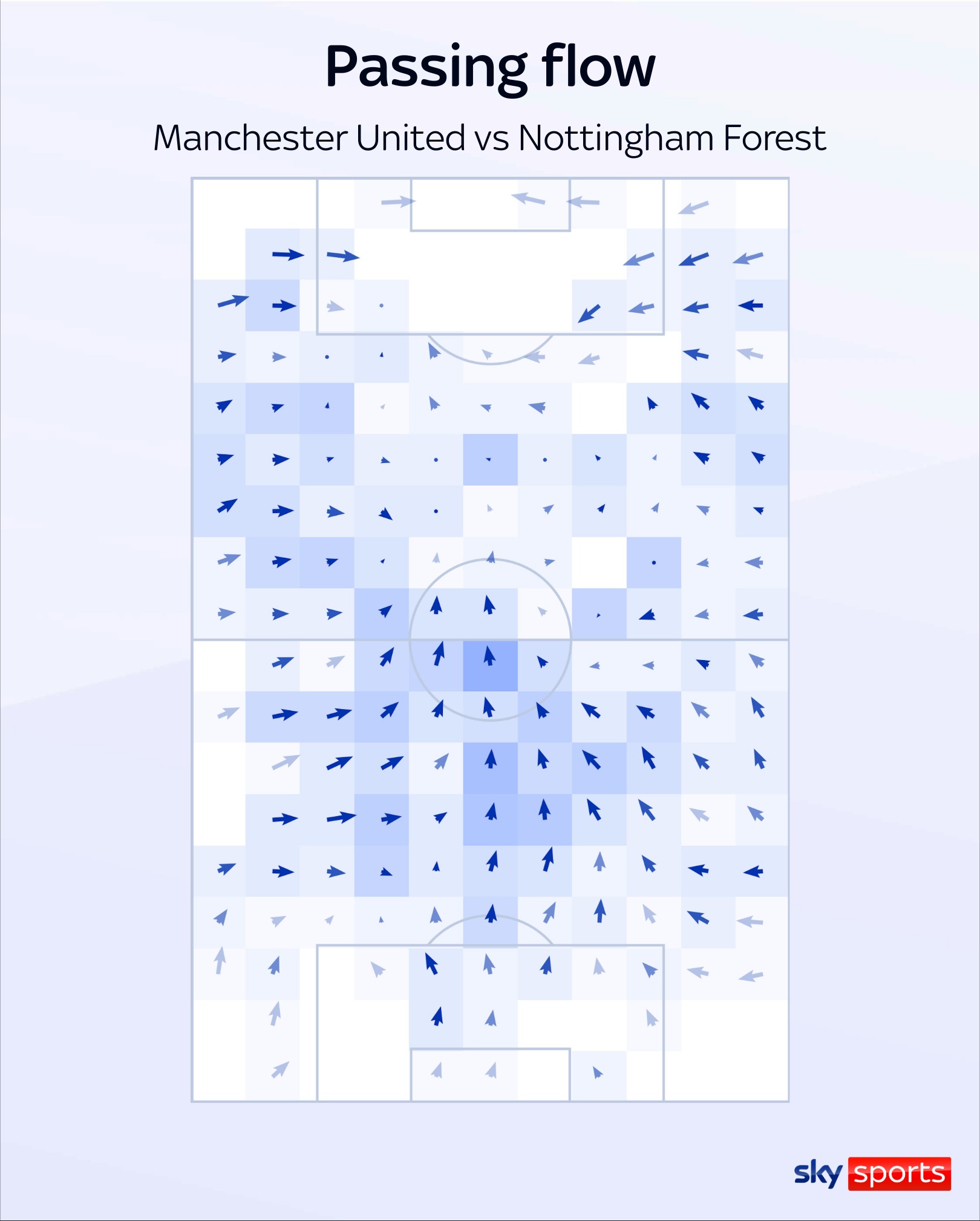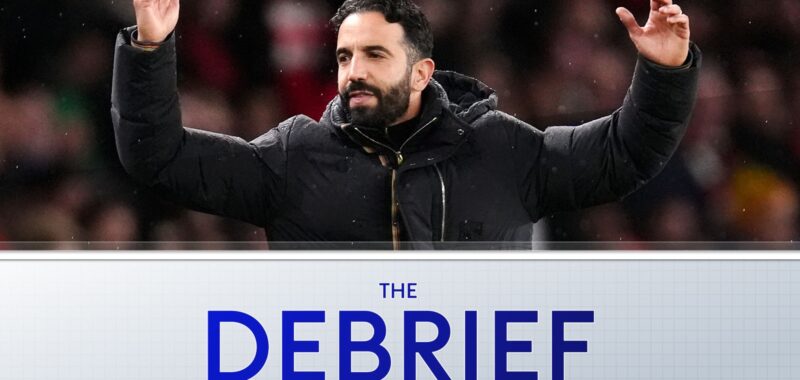The longstanding frustration watching Manchester United under Erik ten Hag was that there was a lack of clarity in what they were trying to do. Even if results have not improved under his successor Ruben Amorim, that is no longer the case.
With four points from his four games in charge, that is the same total achieved in Ten Hag’s final four games. But Amorim has altered the formation and completely changed the way United are trying to build the game. “We are in the beginning,” he says.
Watching the 3-2 defeat to Nottingham Forest at Old Trafford, United’s first goal was the example – one that Amorim highlighted afterwards. Matthijs de Ligt delayed his pass before finding Bruno Fernandes, whose first-time lay-off set Manuel Ugarte away.
“I know that they have to have more confidence not just to take the ball, but also to put the ball between the lines,” said Amorim in his press conference. “We did it in the goal. The first goal is a play like that.” It did not happen as often as he would have liked.
For much of the game, De Ligt searched in vain for that forward pass. Lisandro Martinez, for whom it is usually a feature of his game, struggled to locate the midfielders, as well. The two defenders exchanged a whopping 51 passes in the match, going nowhere fast.
The player who received the next most passes from Martinez? Andre Onana, the goalkeeper. The top five passing combinations for United were all defensive players. Not unusual but the small percentage of passes into the next zone was a major problem.
It has become a trend during Amorim’s first weeks in the job. At Ipswich, they attempted 69 per cent of their passes inside their own half, the highest percentage by United in a Premier League game since Opta began collecting such records.
Their total of 449 attempted passes inside their own half in that game is the most by any Premier League team this season. The next highest? That was the 433 against Everton. This is not a coincidence. Amorim has instructed his team to concentrate on keeping the ball.
“The focus is do not lose the ball with sloppy passes.” The game against Forest was the third time since Amorim took over that they have registered 600 passes in total. There have been only five other examples across the entire Premier League in that period.
The issue against Forest was that the opponent knew the plan and they were able to block the passing lanes to prevent those passes going forwards. This graphic showing the flow of United’s passes highlights that they hit a wall upon reaching the halfway line.

“They are trying to do everything perfect and then they are finding the right solution,” said Amorim. “But sometimes, against low blocks, you have to take the risk.” Do United have enough players right now who are capable of successfully taking those risks?
Amorim removed De Ligt late on and replaced him with Harry Maguire, who attempted to play with a little more urgency, looking longer with his passes. But his two sweeping balls out to the left wing were misdirected and United could not build momentum.
Of course, United’s biggest risk taker in possession is Fernandes, whose clever passes were the catalyst for both his team’s goals – the second of which he also scored himself. Amorim felt obliged to substitute him for Mason Mount because he was tiring.
“I understand that Bruno is really dangerous near the box but he was tired on the transitions,” Amorim explained. “I felt with Mason Mount, he also could be good on set-pieces, he can score also because he’s very technical. And we needed fresh legs.”
Fernandes completed 75 per cent of his passes – by far the lowest completion rate of any United player. But that is because he tries to make things happen. Amorim was given a glimpse in the closing stages of how passive United can look without him.
Ugarte’s pass to set up Alejandro Garnacho in the build-up to their first goal was encouraging. He will need to do more of that. But then, they all will. Amorim is building his game from the back but there is an awful lot of work to do. As he says, it is just the beginning.
Read previous editions of The Debrief






